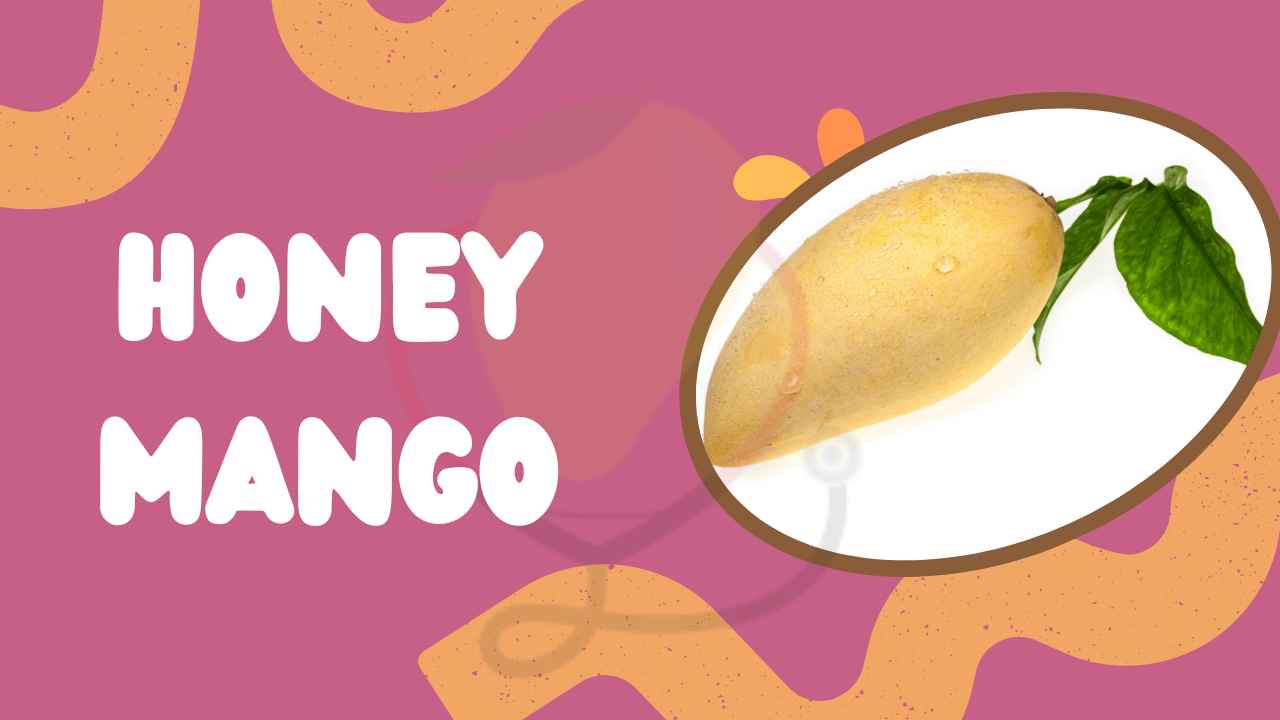The Honey Mango, also known as the “champagne” mango, is small and delicately shaped. Its golden yellow skin ripens to a wrinkled texture when fully ripe.

With velvety smooth flesh and a wafer-thin pit, it offers a super sweet, honey flavor. [1]
This prized variety has a buttery texture, deep yellow color, and is considered one of the finest mango types available.
Origin of Honey Mango
Honey Mangoes, also known as Ataulfo Mangoes, originated in Mexico and were first discovered in the town of Chiapas.
They gained popularity in the United States in the 1990s and are now grown in several countries, including Peru, Ecuador, and the Philippines.
Honey Mangoes are smaller and more oblong in shape than other mango varieties, with a sweet and creamy flesh that is rich in vitamins, antioxidants, and fiber.
Characteristics of Honey mango
Honey Mangoes also have several unique characteristics that distinguish them from other mango varieties.
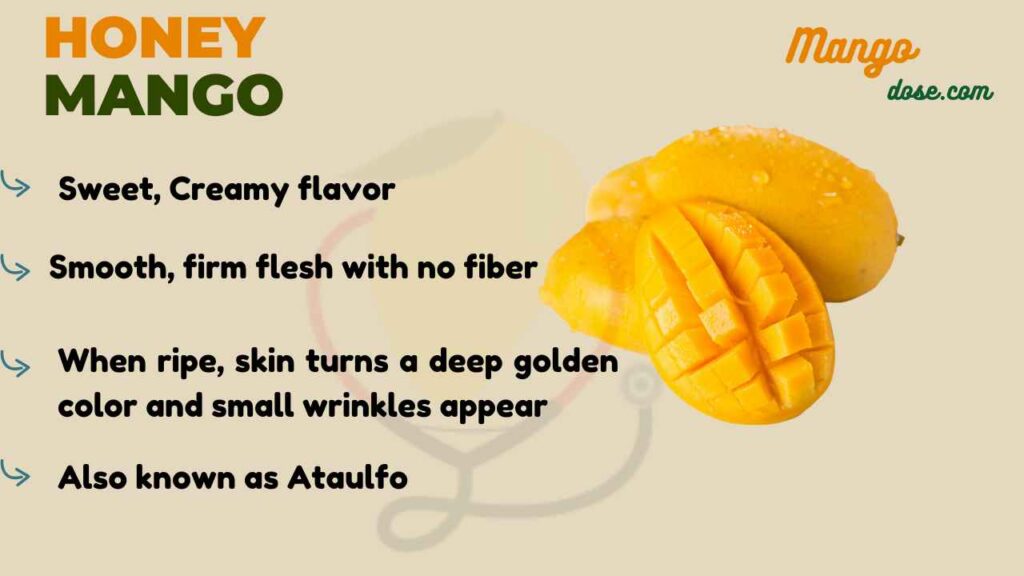
1: Shape and color
Honey Mangoes are smaller and more oblong in shape than other mango varieties, with a golden-yellow color when ripe.
2: Flavor and texture
The flesh of Honey Mangoes is sweet and creamy, with a hint of tartness. It contains less fiber than other mango varieties, making it easier to eat.
3: Ripening
Honey Mangoes ripen quickly and can become overripe if not consumed within a few days of being picked.
4: Availability
Honey Mangoes are typically available from March to July, with peak season occurring in May and June.
Nutritional Values of Honey Mango
Honey Mangoes are a great source of nutrition and provide a range of essential vitamins and minerals. [2] Here are the approximate nutritional values of Honey Mangoes based on a 100-gram serving.
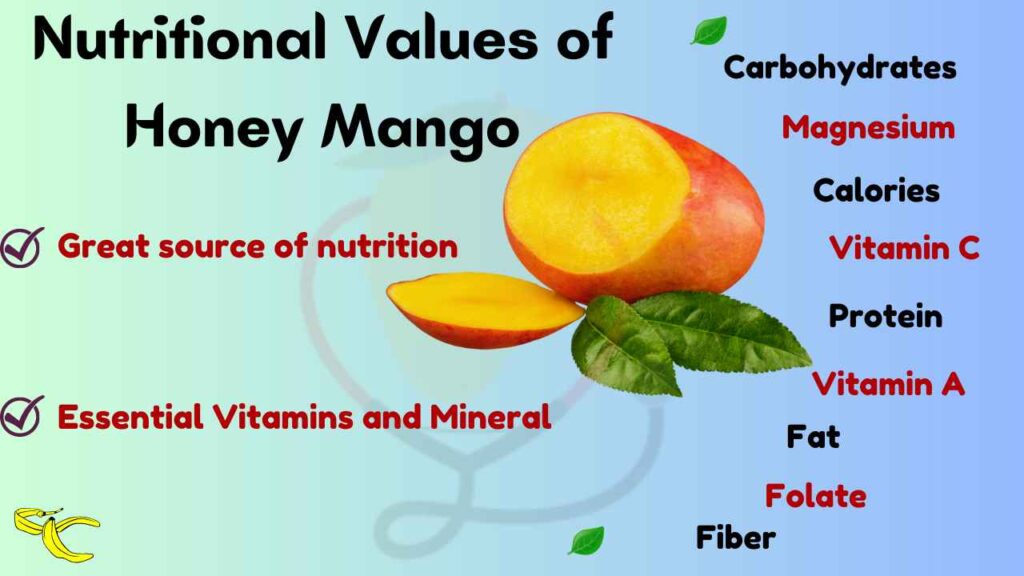
- Calories: 70
- Protein: 0.5 grams
- Fat: 0.3 grams
- Carbohydrates: 17.3 grams
- Fiber: 1.7 grams
- Vitamin C: 27% of the daily value
- Vitamin A: 21% of the daily value
- Folate: 8% of the daily value
- Potassium: 4% of the daily value
- Magnesium: 2% of the daily value
Health Benefits of Honey Mango
Not only is Honey Mango delicious, but it also provides numerous health benefits. Here are some of the most notable ones. [3]
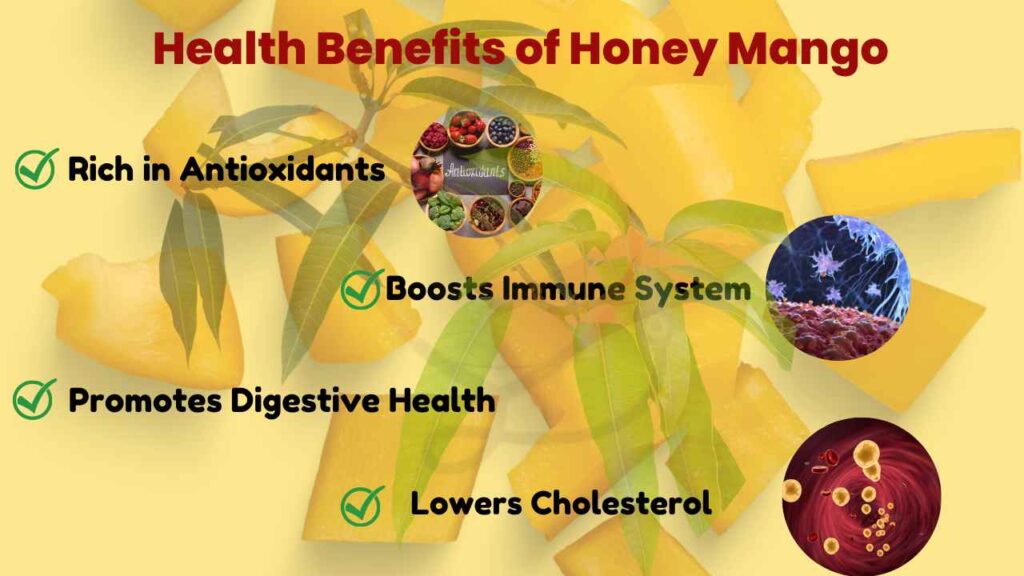
1: Rich in Antioxidants
Honey Mango is rich in antioxidants like beta-carotene, which helps protect the body against harmful free radicals. [4]
2: Boosts Immune System
Honey Mango is high in Vitamin C, which helps boost the immune system, preventing diseases and illnesses. [5]
3: Promotes Digestive Health
Honey Mango is a good source of fiber, which aids in digestion and helps prevent constipation. [6]
4: Lowers Cholesterol
Honey Mango contains compounds that help lower bad cholesterol levels, reducing the risk of heart diseases. [7]
Uses of Honey Mango
Honey Mangoes are not only delicious but also versatile. They are eaten fresh or used in various dishes such as smoothies, desserts, and salads. Here are some creative ways to use Honey Mango:
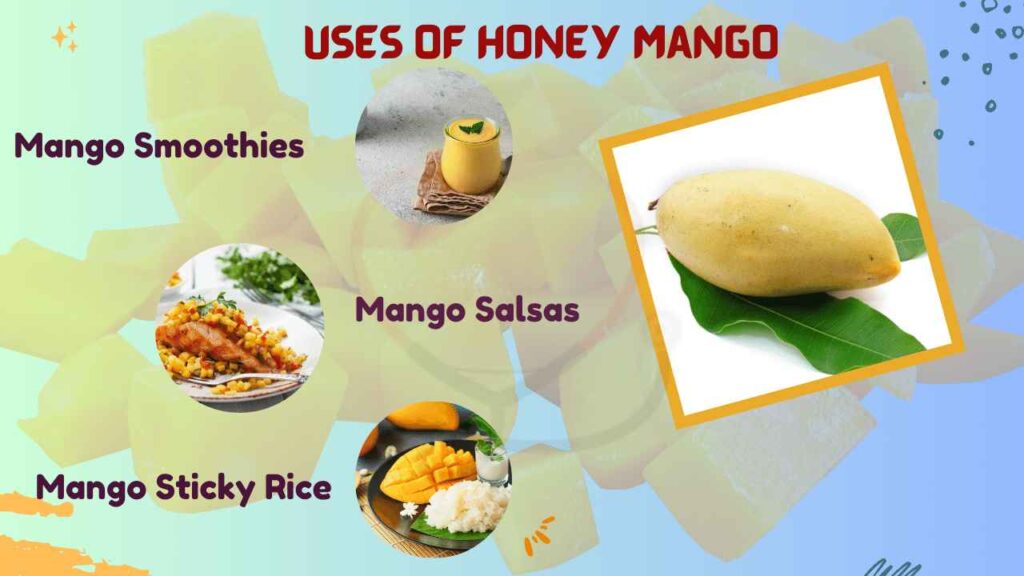
1: Mango Salsa
Combine diced Honey Mango with red onions, jalapeños, cilantro, lime juice, and salt to make a zesty salsa that pairs well with tacos or grilled chicken.
2: Mango Smoothie
Blend Honey Mango with yogurt, almond milk, and honey to make a creamy and healthy smoothie that is perfect for breakfast or a post-workout snack.
3: Mango Sticky Rice
This is a traditional Thai dessert that combines sweet sticky rice with coconut milk and sliced Honey Mango. It is a delicious and refreshing treat that is perfect for hot summer days.
Honey Mango is a delicious and nutritious fruit that is packed with health benefits. Whether you enjoy it fresh, in a smoothie, or in a salsa, this fruit is sure to satisfy your taste buds and provide you with essential vitamins and nutrients.
FAQs
How many calories are in a Honey Mango?
On average, one Honey Mango contains about 100 calories.
Is Honey Mango high in sugar?
Yes, Honey Mango is high in natural sugars, but it is still a healthier alternative to processed sugars found in most snacks and desserts.
Is it safe to eat the skin of a Honey Mango?
Although the skin of Honey Mango is edible, it is recommended to peel it before consuming as it can be tough and unpleasant to eat.
Can Honey Mango be frozen?
Yes, Honey Mango can be frozen for up to six months. To freeze, peel and slice the mango and place it in a zip-lock bag before placing it in the freezer.
What is the season for Honey Mangoes?
Honey Mangoes are typically available from March to July.
Are Honey Mangoes good for weight loss?
Yes, it it good for weight loss. Honey Mangoes are low in calories and high in fiber, which can help with weight loss when consumed as part of a balanced diet.
Can I freeze Honey Mangoes?
Yes, you can freeze Honey Mangoes by peeling.

